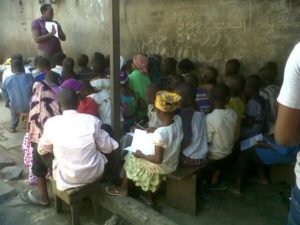
Recently, thirty eight (38) higher institutions of learning in Nigeria increased their tuition fees and among them are three of the oldest universities in the country – University of Lagos (UNILAG), University of Ibadan (UI) and Ahmadu Bello University (ABU) and in some instances by more than 100% or in its multiples. On the face value of it, the increments look insignificant, however, if one is to consider that the national minimum wage in the country is #18,500 coupled with the fact that a substantial number of the Nigerian labour force is not employed by the mainstream public or private sector. Hence, the increments will become important to anyone that is concerned in the future of accessibility to higher education in the country by students from low income backgrounds.
It is important to note that the economics of tuition fees in higher education in different parts of the world is saddled with both economic and political issues that are influenced by multiple factors that range from philosophical to ideological. In global education Inc. by Professor Stephen Ball of the Institute of Education at University College London, he highlights the neoliberal effects on education, emphasising the commodification and marketization of education. Neoliberalism in education can basically be put as a situation in which students are seen as clients, knowledge is treated as products and educational institutions become recruitment agencies.
With this continued trend of tuition fees increment, the question is – what is the future of higher education for young people in Nigeria, particularly students from low income backgrounds? This basic question brings to light the need for the Nigerian education system to provide alternative pathways for young people and other willing mature learners to access higher education and one institution that seems to be able to fill this space at the moment is the National Open University of Nigeria (although it is one of the educational institutions that increased their tuition fees) and with the recent amendment to the law that established NOUN by the Nigerian Senate that students from the university will henceforth be able to participate in the National Youth Service Corps and that law graduates from the university will be able to attend the mandatory law school for whoever studies law at undergraduate level and wants to be called to bar in order to be able to practise the legal profession in the country, one can only feel elated and excited at the prospects and significant impacts such an amendment will make in how online education or non-residential higher education will be received by most people in the country.
But it is not yet eureka on the NOUN issue, as there is need to have a more robust system in place. For instance, the government should make it less bureaucratic, such that colleges of education and other institutions of learning can serve as affiliate colleges to NOUN, while NOUN puts in place a robust system that can cater for the needs of the definite increase in students’ enrolment that it will experience as an institution. Another important area for NOUN is the need to improve and invest in its Information and Communication Technology (ICT) infrastructure and facilities. There’s need for it to have a more responsive website that is designed to offer remote education to anyone in any part of the world, round the clock, throughout the year without any necessity to contact the institution or its staff physically. In addition, other Nigerian institutions of higher learning need to pay attention to and invest more into their distance and online education provisions. This is in order for them to provide access to higher education to more people from diverse backgrounds and not just to those that are able to gain admissions through the University Matriculation Examinations’ routes.
Access to internet in the country is still plagued with issues like connection costs and poor infrastructure, it will be more economical and beneficial for the government to go into formal agreements with major internet service providers (ISPs) in the country on how best the ISPs can provide high speed internet connections to educational institutions in the country and students that are enrolled on their courses, while the government makes use of any of the numerous viable options at its disposal on how best to pay for such services. For instance, the government can decide to give tax rebates to major ISPs in the country that participate in the project or government can facilitate bulk purchase of internet contracts between the students and the educational institutions on one side of the deal and the ISPs on the other side of the deal. And with a recent National Communication Commission’s (NCC) data that there are over 140 Million mobile technology subscribers in Nigeria, it will be expected that the internet provisions, course delivery platforms, and resources for teaching and learning to be used by the educational institutions will be optimised for mobile technology.
Please, leave your thoughts on this post in the comment section and feel free to share the article with your contacts. Thanks for taking out of your precious time to read my article/s!
If you like this post, kindly subscribe and/or follow me on Twitter @otukogbe and @EdusoundsNg or on Facebook at edusoundsng.





I like this idea of free internet/wifi. I however strongly believe that a lot of internet policing should also be done as more young minds gain admission into the Universities at younger ages now and can get addicted to the wrong sites if not properly monitored. There are so many internet related issues like pornography, gang-raping, violence, amongst others parents are struggling with presently.